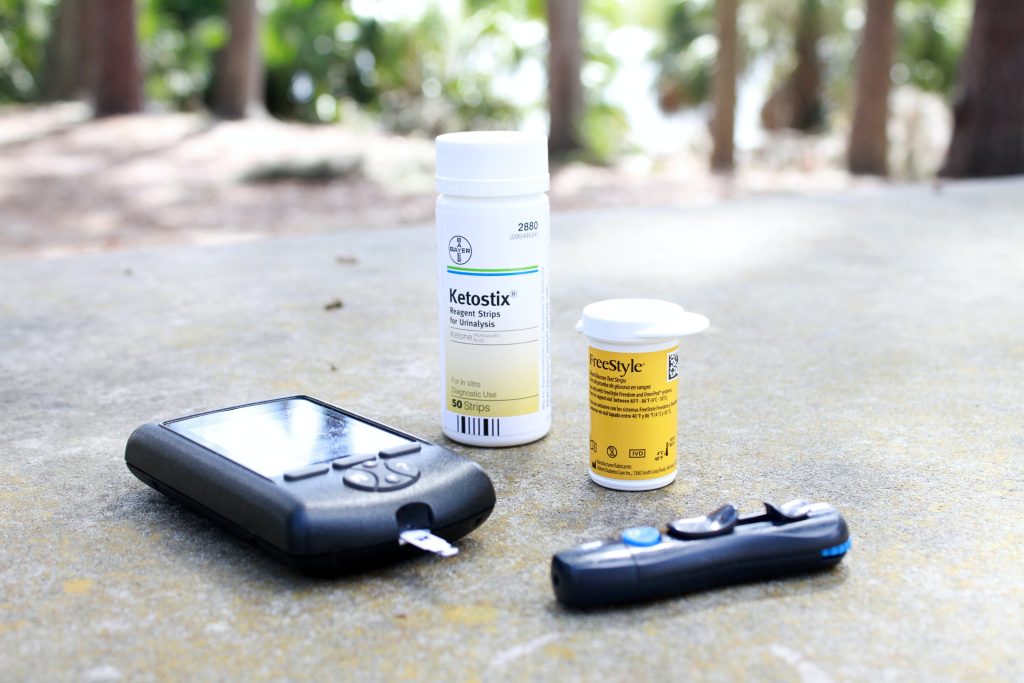Living abroad can be an exciting adventure, but it also comes with its fair share of challenges, including navigating the healthcare system. If you’re wondering whether expatriates have access to the National Health Service (NHS) in the UK and if health insurance is necessary, fret not! This article will guide you through the ins and outs of accessing the NHS as an expatriate, providing you with the information you need to ensure your health and well-being are taken care of while living away from home.
How to Access the NHS as an Expatriate
Understanding the National Health Service (NHS)
The National Health Service (NHS) is the publicly funded healthcare system in the United Kingdom (UK). It provides comprehensive healthcare services to residents of the UK, including medical consultations, hospital treatment, and emergency care. The NHS is renowned for its commitment to providing high-quality and accessible healthcare to all eligible individuals.
Determining Eligibility for NHS Access
Eligibility for accessing the NHS as an expatriate depends on various factors, such as your residency status and nationality. The following sections outline the criteria for EU citizens and non-EU citizens.
Residency Criteria
To be eligible for NHS services, you must be a resident of the UK. The NHS considers you a resident if you have settled status and have been living in the UK for at least six months. This residency requirement ensures that the NHS can provide healthcare to those who contribute to the system through taxes and other means.
EU Citizens
EU citizens who are resident in the UK are eligible for NHS services. If you are an EU citizen living in the UK, you can access the NHS by registering with a General Practitioner (GP) and obtaining an NHS number. Your European Health Insurance Card (EHIC) or Global Health Insurance Card (GHIC) can help facilitate NHS access.
Non-EU Citizens
Non-EU citizens may still be eligible for NHS services, depending on their immigration status. Some visas, such as the Tier 2 Work Visa, entitle holders to access the NHS. It is important to check the specific requirements for your visa category to confirm your eligibility.
Registering with a GP
Registering with a GP is the first step towards accessing the NHS. A GP is a primary care physician who manages your overall healthcare needs and refers you to specialists or hospitals when necessary. To register with a GP, follow the steps below.
Locating a GP
To find a GP near you, you can use the NHS website or ask for recommendations from friends, colleagues, or neighbors. The NHS provides a search tool that allows you to locate GPs in your area based on your postcode.
Registering with a GP
Once you have chosen a GP, contact their office to inquire about registration. You will typically need to provide proof of address, identification documents, and, if applicable, immigration status documents. The GP’s office will guide you through the registration process and assign you an NHS number.
Choosing a GP
It is important to choose a GP who suits your healthcare needs and preferences. Consider factors such as the GP’s location, office hours, and language proficiency. You can also consider their specializations or areas of expertise if you have specific healthcare requirements.
Obtaining an NHS Number
Importance of an NHS Number
An NHS number is a unique identifier assigned to each individual registered with the NHS. It is crucial for accessing NHS services and maintaining accurate healthcare records. Your NHS number allows healthcare professionals to quickly retrieve your medical history, ensuring continuity of care and efficient communication between providers.
Requesting an NHS Number
Upon registering with a GP, you will be assigned an NHS number. It is important to keep this number safe and provide it whenever you seek healthcare services. If you have misplaced or forgotten your NHS number, you can contact your GP’s office to retrieve it. They will be able to assist you with any necessary updates or corrections to your personal details.
Updating Personal Details
It is essential to keep your personal details up to date, as any changes in residence, contact information, or immigration status should be reflected in your NHS records. If you have any changes to report, such as a new address or a different phone number, inform your GP’s office promptly to ensure the accuracy of your NHS records.

Accessing NHS Services without an NHS Number
Emergency Care without an NHS Number
In the case of a medical emergency, the NHS provides immediate care to anyone, regardless of their NHS number or residency status. Emergency healthcare is available to all individuals present in the UK, including expatriates and tourists.
Maternity Care without an NHS Number
Pregnant individuals, regardless of their NHS number or residency status, are eligible for antenatal care and maternity services through the NHS. This includes access to midwives, prenatal screenings, and hospital services for delivery. If you are pregnant and do not have an NHS number, contact your nearest maternity unit for guidance on accessing care.
Temporary Access to NHS Services
While an NHS number is typically required for routine healthcare services, expatriates who are not yet registered with a GP can still access temporary healthcare services. Walk-in centers, urgent care clinics, and some specialized services may be accessible without an NHS number. However, it is important to note that registering with a GP as soon as possible is essential for comprehensive and ongoing healthcare.
Applying for an EHIC or GHIC
European Health Insurance Card (EHIC)
If you are an expatriate from an EU member state, you may be eligible for an EHIC. The EHIC card provides access to necessary healthcare while visiting other EU countries, including the UK. It facilitates the provision of care by allowing you to be treated on the same terms as a resident of the visited country. The EHIC covers both emergency and non-emergency medical treatments in the UK.
Global Health Insurance Card (GHIC)
The GHIC is the replacement for the EHIC for UK residents. It provides the same healthcare entitlements as the EHIC, allowing access to state healthcare services across the EU, including emergency and necessary medical treatments. The GHIC is available to both UK residents and expatriates.
Eligibility and Application Process
To apply for an EHIC or GHIC, you can visit the official NHS website or contact your home country’s healthcare authority. The process may vary depending on your country of residence. Ensure you provide accurate and up-to-date information during the application process to avoid any delays or complications in obtaining your EHIC or GHIC.

Understanding the Role of Health Insurance
Benefits of Health Insurance
While the NHS provides comprehensive healthcare for residents, having health insurance as an expatriate can offer additional benefits. Health insurance can provide coverage for services and treatments that may not be available or covered by the NHS. It can also offer access to private healthcare facilities and reduced waiting times for certain procedures.
Necessity of Health Insurance
Although health insurance is not a requirement for accessing the NHS, it is strongly advised for expatriates residing in the UK. Health insurance provides an extra layer of protection and ensures you have access to a wider range of healthcare options. It can help cover the costs of private consultations, elective procedures, and additional services that may not be available through the NHS.
Types of Health Insurance Plans
When considering health insurance options, it is important to research and compare different plans to find one that suits your needs and budget. There are various types of health insurance plans available, including comprehensive coverage, catastrophic coverage, and international health insurance. Take into account factors such as premiums, deductibles, coverage limits, and exclusions when selecting a plan.
Private Health Insurance Options
Choosing a Private Health Insurance Provider
Selecting a reputable private health insurance provider is essential to ensure you receive reliable coverage and quality healthcare services. Research different providers and compare their plans, customer reviews, and reputation in the industry. Consider factors such as network coverage, customer support, and claim procedures when making your decision.
Coverage and Costs
Private health insurance plans vary in terms of coverage and costs. Some plans may cover a wide range of services, including specialist consultations, diagnostic tests, and hospital stays, while others may have more limited coverage. Carefully review the details of each plan to understand what treatments and services are included and any cost-sharing requirements, such as deductibles or co-payments.
Exclusions and Limitations
It is crucial to thoroughly review the terms and conditions of your private health insurance policy, as each plan may have exclusions and limitations. Certain pre-existing conditions, elective procedures, or alternative therapies may not be covered by private insurance. Make sure you are aware of these limitations to avoid any surprises or unexpected expenses.

Knowing Your Rights and Responsibilities
Patient Rights in the NHS
As an expatriate accessing the NHS, you have rights as a patient. These rights ensure you receive safe, effective, and appropriate healthcare. Key patient rights include the right to be treated with dignity and respect, the right to access healthcare in a timely manner, the right to be informed about your treatment options, and the right to participate in decisions about your care.
Complaints and Feedback
If you have any concerns or complaints about your healthcare experience in the NHS, it is essential to raise them. The NHS encourages open communication and provides channels for patients to voice their feedback. Contact your GP’s office or the NHS complaints department to report any issues and seek resolution.
Understanding Healthcare Costs
While most NHS services are free at the point of use for eligible individuals, there may be certain costs associated with specific treatments, prescriptions, or dental care. It is important to familiarize yourself with the potential charges to ensure you are aware of any financial responsibilities and can plan accordingly. The NHS website provides detailed information on healthcare costs and exemptions.
In conclusion, as an expatriate, accessing the NHS requires understanding the eligibility criteria, registering with a GP, and obtaining an NHS number. It is also worth considering health insurance options to complement the services provided by the NHS. By knowing your rights and responsibilities and being aware of the available resources, you can navigate the NHS system effectively and ensure you receive the necessary healthcare during your time in the UK.

